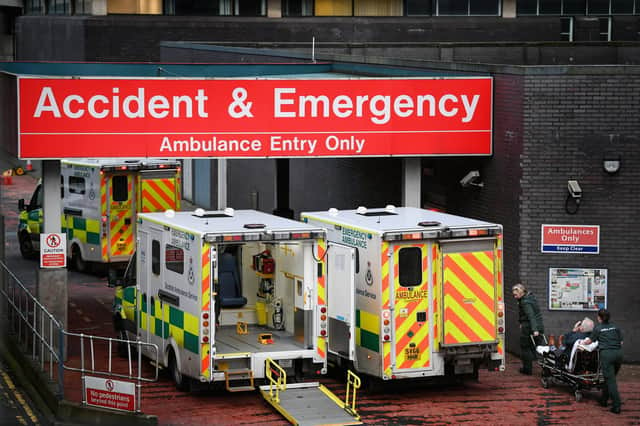UK 'unlikely to achieve Covid herd immunity before summer', says chief scientist


Calum Semple, professor of outbreak medicine at the University of Liverpool and a member of the Scientific Advisory Group for Emergencies (Sage), described the Oxford/AstraZeneca vaccine as a "game changer" if it is approved by the Medicines and Healthcare products Regulatory Agency (MHRA) in coming days.
But he told BBC Breakfast: "To get the wider community herd immunity from vaccination rather than through natural infection will take probably 70 per cent to 80 per cent of the population to be vaccinated, and that, I'm afraid, is going to take us right into the summer I expect."
Advertisement
Hide AdAdvertisement
Hide AdIt comes as hospitals in the UK’s south face a rise in pressure as the number of coronavirus patients receiving treatment heads towards the April peak.
Saffron Cordery, deputy chief executive of NHS Providers, said: "We know that the rate of Covid-19 admissions is rising and some trusts are reporting up to three times the number of Covid patients than at the peak of the first wave.
"This means hospitals and also ambulance services in tier four areas and beyond are incredibly busy, compounded by increasing staff absences due to illness and the need to self-isolate."
She added: "Nightingale hospitals were created as an insurance policy. It is possible that they will be used in the near future.
"However, they will need additional staff, which is a resource currently in short supply."
Paramedics in London are receiving almost 8,000 callouts daily, and Boxing Day was described as one of London Ambulance Service's "busiest ever days".
The 7,918 calls received by London Ambulance Service (LAS) on December 26 was up more than 2,500 on the 5,217 received on the same day last year, and medics are receiving support from other ambulance services in the South.
Dr Katherine Henderson, the president of the Royal College of Emergency Medicine, described her experience of working in a hospital on Christmas Day as one of "wall-to-wall Covid".
Advertisement
Hide AdAdvertisement
Hide Ad"We see patients who are coming in who have Covid symptoms and then we have other people coming in with other symptoms who turn out to be Covid positive," she said.
"Between that, there's a great deal of difficulty getting those patients through into the wards.
"The chances are that we will cope, but we cope at a cost - the cost is not doing what we had hoped, which is being able to keep non-Covid activities going.
"So we will stretch staff, the problem is at the moment we have a lot of staff sickness."
Professor Jackie Taylor, president of the Royal College of Physicians and Surgeons of Glasgow, told the programme London and the South East were now experiencing what Scotland went through in the autumn.
More than six million people in east and south-east England went into the highest level of restrictions on Saturday, which now affects 24 million people representing 43 per cent of the population.
And Cabinet Office Minister Michael Gove has not ruled out the whole country being moved into tier four restrictions.
Comments
Want to join the conversation? Please or to comment on this article.
